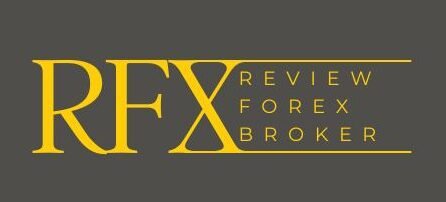One of the most important considerations when choosing a forex broker is how they handle your funds. The security of your capital should be a top priority, especially in a market as fast-paced and volatile as forex. A key concept that many traders overlook is the difference between segregation and commingling of client funds, which can have significant implications for the safety of your money.
In this blog, we’ll explore what these terms mean, how brokers manage your funds, and the risks and benefits associated with each approach. Understanding these practices can help you choose a broker that safeguards your investments and provides peace of mind.
What is Segregation of Client Funds?
Segregation of funds refers to the practice of keeping client funds separate from the broker’s operational funds. In this model, your money is held in a separate bank account that is not used for the broker’s day-to-day business activities, such as paying staff, marketing, or managing other operational expenses. Segregation ensures that client funds are protected, even in the event of the broker facing financial difficulties or insolvency.
Benefits of Fund Segregation:
- Client Protection in Case of Insolvency: If a broker goes bankrupt, segregated funds are not considered part of the broker’s assets. This means client funds should be returned to the traders rather than used to settle the broker’s debts.
- Increased Trust and Transparency: A broker that segregates client funds demonstrates transparency and a commitment to maintaining ethical business practices.
- Compliance with Regulations: Many regulatory authorities, such as the FCA (Financial Conduct Authority) in the UK and ASIC (Australian Securities and Investments Commission), require brokers to segregate client funds. This helps to protect clients from potential financial mismanagement.
Risks of Segregated Funds:
While segregating funds offers substantial protection, there are some factors to consider:
- No Complete Guarantee: Even with segregation, client funds may still be at risk if the broker engages in fraudulent activities or fails to follow regulatory guidelines. In these cases, it could take time to recover your funds.
- Trust in the Bank Holding Funds: While brokers segregate funds in separate accounts, these accounts are often held at financial institutions. If the bank holding these funds faces a crisis, your money could still be at risk.
What is Commingling of Client Funds?
Commingling of funds refers to a scenario where client funds are pooled with the broker’s operational funds in the same account. In this model, the broker uses the same funds to conduct its business activities, including covering expenses, executing trades, and managing other financial obligations.
Risks of Fund Commingling:
- Increased Risk During Broker Insolvency: If the broker becomes insolvent or goes bankrupt, client funds may be used to pay off the broker’s creditors. Traders risk losing part or all of their investments.
- Lack of Financial Transparency: When brokers commingle funds, it becomes difficult to determine how your money is being used. This lack of transparency can create uncertainty and distrust.
- Potential for Misuse of Funds: Brokers may be tempted to use client funds to cover their own operational losses or take risks in the market. This can result in client money being exposed to significant risk, especially in cases where the broker engages in speculative trading with commingled funds.
Why Do Some Brokers Still Commingle Funds?
Despite the risks, some unregulated or offshore brokers continue to commingle client funds for several reasons:
- Lower Operational Costs: By commingling funds, brokers reduce the costs associated with maintaining separate accounts for clients.
- Lack of Regulatory Oversight: Unregulated brokers are not bound by stringent guidelines that enforce the segregation of funds, allowing them to manage money more loosely.
- Increased Liquidity: Brokers can access more liquidity when they have full control over both client and operational funds. This allows them to meet margin requirements and trade more aggressively, albeit with a higher risk to client funds.
Regulated vs. Unregulated Brokers: A Key Differentiator
The way brokers handle client funds is often dictated by whether they are regulated or unregulated. Regulated brokers are typically required to segregate client funds, while unregulated brokers may not face such obligations. Choosing a regulated broker ensures that your money is handled with greater care and security.
- Regulated Brokers: Most brokers regulated by top-tier financial authorities like the FCA, ASIC, or CySEC (Cyprus Securities and Exchange Commission) are required to segregate client funds. This provides traders with an additional layer of protection.
- Unregulated Brokers: Offshore and unregulated brokers may not be bound by strict rules and could commingle funds. While these brokers may offer attractive bonuses and promotions, the security of your funds is often compromised.
How to Verify Whether Your Broker Segregates Funds
When selecting a forex broker, it’s crucial to ensure that they segregate client funds. Here are a few steps to verify whether your broker follows this practice:
- Check Regulatory Status: Confirm that your broker is regulated by a reputable financial authority. Regulatory websites typically provide information on brokers and their compliance with fund segregation rules.
- Read the Broker’s Terms: Go through the broker’s terms and conditions to see if they mention segregated accounts. Many regulated brokers openly disclose their fund-handling practices on their websites.
- Ask Questions: Don’t hesitate to contact the broker’s support team and ask how client funds are managed. A trustworthy broker should provide clear and straightforward answers.
- Look for Independent Audits: Some brokers undergo regular audits by third-party firms to ensure compliance with financial regulations. These audits can offer reassurance that your funds are being handled properly.
Conclusion: Why Fund Segregation Matters
Whether you’re a beginner or an experienced forex trader, understanding how your broker handles client funds is critical. Segregation offers a higher level of protection and peace of mind, ensuring that your money is kept separate from the broker’s operational funds and is more likely to be safeguarded in the event of insolvency. In contrast, commingling presents higher risks, especially if the broker is unregulated or operates in less transparent markets.
Ultimately, choosing a broker that prioritizes fund segregation and is regulated by reputable authorities is one of the best ways to protect your investment in the forex market. Transparency, trust, and regulatory compliance should always be at the forefront of your decision-making process when selecting a broker.

